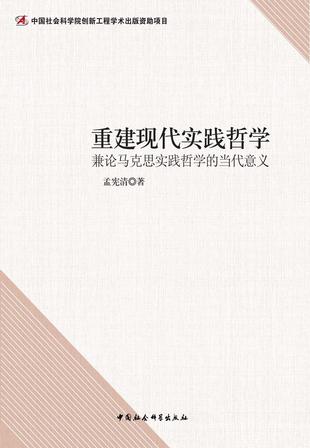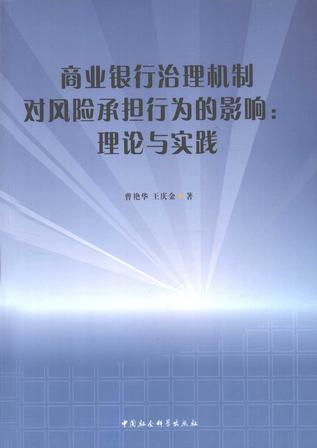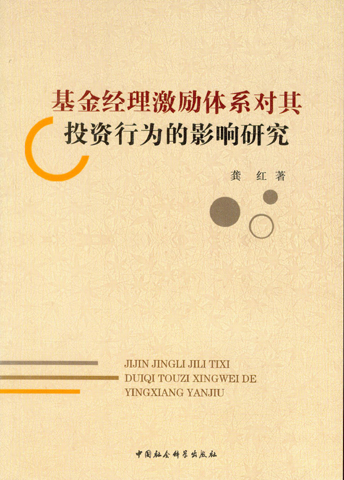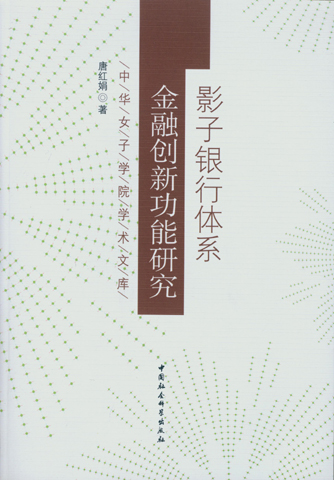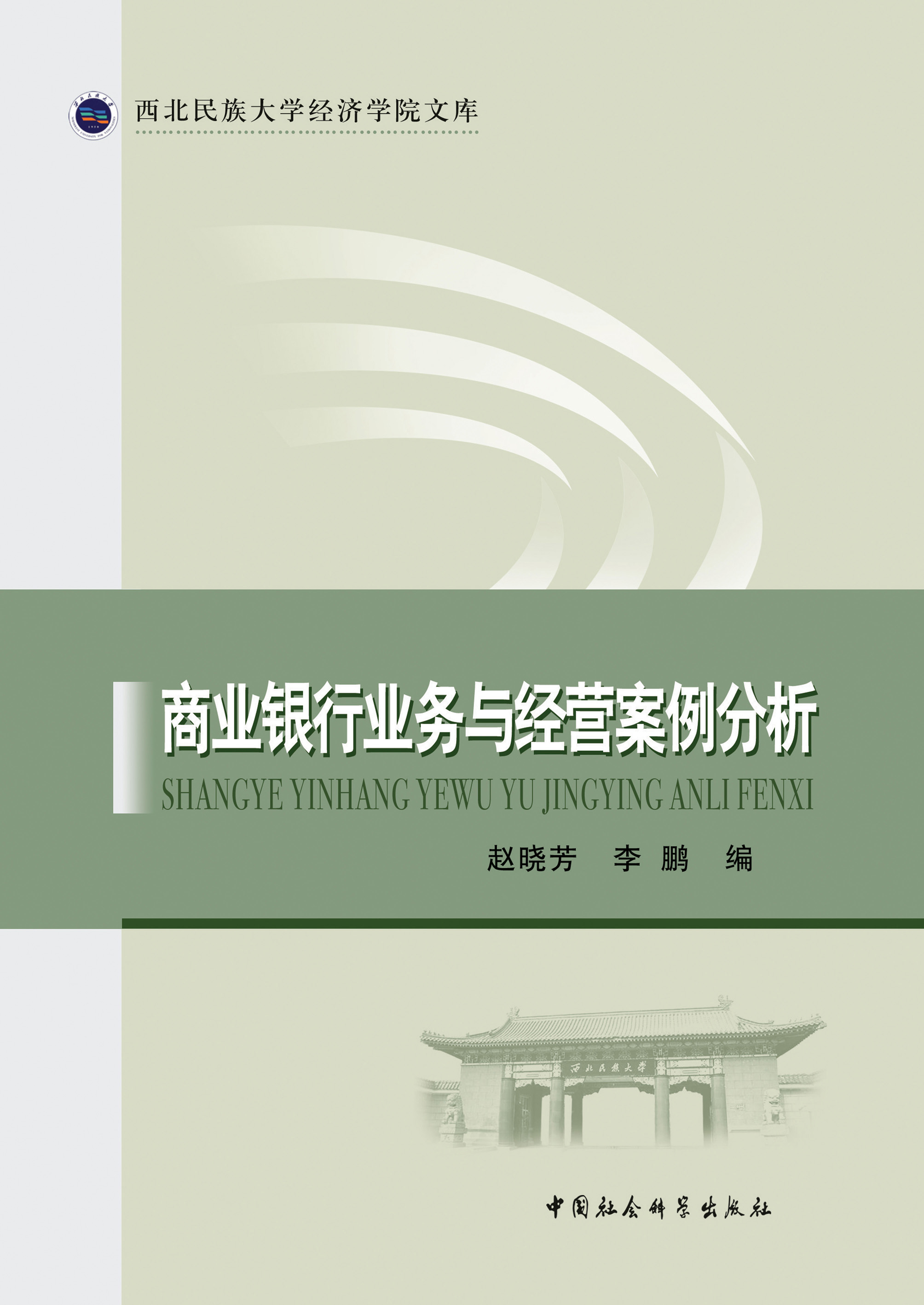内容简介
作者简介
目录
As an emerging financial services product,financial assetmanagement business has developed rapidly in this century with the involvement of more and more financial institutions and professional assetmanagers.But in China,financial assetmanagement is not a legal concept and there is no unified definition of access to the business or business operations.Therefore questions about the subject status of the practitioner or transfer of the business are brought up once disputes occur.Contradictions between the needs of judicial practice and the absence of law are prominent.This thesis believes that the legal implications of the financial assetmanagement contains three aspects:financial assets as themain subjectmatter of assetmanagement;assetmanagers as the subject,which refers to the professional assetmanagers including subjects legally engaging in asset management business,not necessarily limited to the existing system of permitted financial institutions.Investment portfolio asmanagement activities,which aims tomaintain or increase the value of the assetsmainly through the capitalmarkets,not including consultations.Currently,assetmanagers in China include fund companies,banks,securities companies,trust companies,insurance companies,financial assetmanagement companies,pension fund companies and financial holding companies,as well as investment companies and investment advisory firms who are in practice engaged in assetmanagementbusiness.Some of them are under the supervision of law,but some of them are absolutely unregulated.Due to the characteristics of financial supervision model in China,there are discrepancies among regulatory rules of different regulatory bodies,which lead to the unequal status of the assetmanagers in competition.Moreover,the lack ofmacroscopic sense and stability of the regulations results in the confusion of the business.Though financial assetmanagement activities are regulated by different regulations because of their different subjects,they are homogeneous in law.The nature of the legal relationships established through the financial asset management agreements,or between the assetmanagers and the investors(or clients)is butone in law.Scholars have different theories about the nature of financial assetmanagement.Some define it as entrusted agency or trust;some separate it into several classifications.This thesis holds the view that the nature of financial asset management relates to trust.Different with commission and brokerage,in the development of systems in the common law,trust refers to a propertymanagement system with three subjects of the settler,the trustee and the beneficiary.The settler entrusts his property rights to the trustee and allows the trustee to,according to the will of the settler and in the name of the trustee,administer or dispose of such property in the interest of a beneficiary or for any intended purposes.The trust property is independent.In financial assetmanagement activities,the settler also acts as the beneficiary.The financial asset is controlled by the manager as soon as transferred.With professional knowledge themanagermanages for the interests of the investor to increase the value of the asset.However,there are both realistic and theoretical barriers in defining the nature of financial assetmanagement as trust in China.The realistic obstacle mainly refers to the absence of trust in tradition and ideology.The strict provisions for the trustee of our trust system discourage the managers to recognize their business activities as trust for their own sake.The theoretical obstacle refers to the adoption of the subjective principle in China's business activities,which means that only trust companies are eligible to engage in trust activities.This paper argues that China should be in accordance with the objective princi-ple to give the trustees legal obligations as long as their activities have the same nature with trust objectively,regardless ofwhether they are registered as a trust subject.Why financial assetmanagement activities with the same nature apply different regulations?Who is a qualified financial assetmanager?Why can not the managers compete with each other equally?Facing these problems we have to first answer two questions:do financial assetmanagement activities(or financial assetmanagement industry if it is a type of business)need to be supervised or supervised by uniform regulations?Financial assetmanagement happens in the financialmarketwith financial innovation that has a subtle relationship with financial supervision.Only be supervised can the innovation observes the order of themarket and ensures the interests of the investors.For this relationship the financial assetmanagement industry should be supervised.Also,it's reasonable to supervise it by uniform regulations for four reasons.First,financial assetmanagement industry covers a large scale.Second,unified supervision is the need for regulating assetmanagementactivities.Third,unified supervision contributes to the justice and specialization of financial assetmanagementaswell as the construction of competition order.Fourth,unified supervision goes in linewith international trends.Of course,there is a sensitive issue if unified supervision of financial asset management industry is to be carried out in China-the supervisionmodel of the financial sector.While horizontally unified supervision of the financial sector is an international trend,our financial supervision model is not likely to realize it shortly in the existing background and within the current development of law.However,the possibility exists since it's possible to supervise activities in horizontal uniformity within the financial sector due to their homogeneity.When our financial supervision structure is not to be reformed at themoment,we first call upon the unification of the supervision system to setup the supervision principles and establish the access system to themarket and the supervision system for the operation of financial assetmanagement.With the unified principles,the supervision authorities can regulate the subjectswithin their own responsibilities.Subjects beyond the responsibility of the three financial regulators should be supervised by the administration for industry and commerce when the manager get registered and during operation.Self-regulation is also advocated.It's a process of value selection to determine the supervision principles of the financial assetmanagement industry.Economic law values fairness(reflecting the balance among individuals in the market),fairness in development chances between generations,(reflecting the balance between the people and the environment),efficiency(reflecting the maximal interests of the society in sustainable development),interests(reflecting the protection of public interests).Therefore,supervision of the financial asset management industry should contain the contents reflecting security,fairness,efficiency and so on.These valuesmay in conflictwith each other,thus internal coordination is needed to ensure the legitimacy and validity of the principles.This paper argues that these principlesmay contain the following aspects:first,maintenance of financial stability and security;second,moderation based on themaximal interests of the society;third,protection of the interests of the clients(investors);fourth,combination ofmacro-prudence and micro-prudence.The firstquestion to be solved is:who is to be supervised,the practitioners or the industry?All the existing assetmanagement services provided by financial institutions are based on the trust system and its legal principles,thus the supervision system of the trust can not be turned away from.There is a tight connection between the access system of the assetmanagement industry and that of the trust industry.In China,trust supervision is the supervision of trust companies and the permission to the entrance of the industry is quite strict.On this back-ground this paper suggests the building of supervision system focus on the business.Managers engaging in trust are not necessarily to be trust companies,as long as they are permitted to provide the same services.Being permitted to provide a certain servicemeans to be a qualified manager of financial assetmanagement.Qualifications to be considered are as follows:capital,operational capacity,creditand procedural requirements.Meanwhile,the qualifications of the investors are also to be considered.Investorsmentioned heremainly refer to individuals because unlike institutions with professional knowledge and capacity,they are easy to be influenced by financial risks.Qualified investors are judges by theirmaturity,credit and wealth.For collective financial assetmanagement products,there should be restrictions on the numbers of investors involved,which mainly refer to private equity.The supervision of operation refers to the regulation of the behavior of the qualified manager.The status of themanager decides the code of behavior within the industry.Therefore,themanger has fiduciary obligation.Though it's improper to define financial assetmanagement as trust,it's reasonable to define assetmanager as trustee according to Trust Law.Also,the status of the manager can be decided by the relationship built through the financial assetmanagement agreementwithin particular financial area.The particularity of assetmanagement gives higher obligation to themanager than the agentof entrusted agency.Therefore,the behavior of a manager can be defined as fiduciary act with both contract obligation and statutory obligation,butmainly fiduciary obligation-duties of care and fidelity.So the management behavior requires prudence and fidelity.Though the transfer of fiduciary obligation is allowed in common law,in China,themanager should operate the business by himself instead of transferring it to a third party if the practice of trust is considered.The development of financial products should also be supervised to avoid obscurity,ambiguity and confusion.Themanager is obliged for the disclosure of information from interpretations be-fore signing an agreement and genuine information during the operation.The supervision of operation also includes supervision over accountmanaging and fees collecting and ensuring the nonoccurrence of prohibited behaviors.Once the manger violates above obligations,he should be liable. Key words:financial institutions,assetmanagementbusiness,unified supervision
全部显示∨
赵意奋,女,1971.12,浙江舟山人,毕业于华东政法大学经济法学院,法学博士,宁波大学法学院副教授,宁波大学区域经济与社会发展研究院专项课题组成员。主要研究方向:金融法、票据法。
第一章 金融机构受托资产管理的概念及性质第一节 金融机构受托资产管理概念界定一、学界对资产管理的概念界定
二、本文资产管理的概念界定
三、“金融机构受托资产管理”的概念说明
第二节 金融机构受托资产管理性质观点之评介一、学界关于资产管理性质之主要观点(一)委托代理说
(二)信托说
(三)分类性质说
(四)独立性质说
二、对各学说的质疑与评析(一)质疑之一:资产所有权归属与谁
(二)质疑之二:业务的开展以谁的名义
(三)质疑之三:受托资产投资去向决定权归属谁
第三节 金融机构受托资产管理和信托的耦合一、委托和行纪难以成为资产管理的有效制度(一)信托和委托的比较
(二)信托与行纪的比较
二、信托是财产管理的制度安排(一)信托是管理财产需要的制度结果
(二)信托是区别于合同的财产管理制度
(三)信托是具备多方交易关系的财产管理制度
三、信托的构成要件(一)委托人、受托人、受益人三方主体
(二)信托财产由受托人处分的意思表示
(三)为受益人利益设立信托的目的
(四)独立的信托财产
四、资产管理和信托相符的特质(一)委托人为自己利益与资产管理人(金融机构)建立的资产管理关系
(二)将资产交资产管理人管理的意思表示
(三)受管理的资产的独立性并由管理人控制的事实
第四节 金融机构受托资产管理信托关系的确定一、金融机构受托资产管理信托定性的障碍(一)赋予受托资产管理信托性质的现实障碍
(二)赋予受托资产管理信托性质的理论障碍
二、金融机构受托资产管理信托性质质疑之解惑(一)解惑一:关于委托人是否有设立信托的目的的质疑
(二)解惑二:关于资产管理人是否享有受托财产的所有权之质疑
三、金融机构受托资产管理信托定性的价值
第二章 金融机构受托资产管理监管现状分析第一节 金融机构受托资产管理及监管梳理一、基金管理公司的受托资产管理及监管
二、证券公司的受托资产管理及监管
三、商业银行的受托资产管理及监管
四、信托公司的受托资产管理及监管
五、保险公司的受托资产管理及监管
六、资产管理公司的受托资产管理及监管
第二节 金融机构受托资产管理及监管比较分析一、金融机构受托资产管理及监管的相同性(一)资产管理业务相同
(二)投资方向相同
(三)合格投资者标准基本相同
二、金融机构受托资产管理及监管的不同性(一)资产管理公司的名称中行号显示不同
(二)市场准入标准不同
(三)监管制度不同
三、金融机构受托资产管理及监管异同的原因(一)分立监管是主要原因
(二)监管部门对资产管理的认识趋同性
(三)监管部门对资产管理监管理念存有差异
第三节 金融机构受托资产管理分立监管之问题一、分立监管导致受托资产管理性质认识的不统一(一)分立监管是不同金融业务的监管
(二)金融机构受托资产管理法律性质规定混乱
二、分立监管导致立法成本浪费(一)分立监管带来的立法不效率
(二)监管法规重复带来的浪费
(三)监管法规不共享带来的浪费
三、分立监管导致的监管标准不统一(一)不平等的竞争环境
(二)投资者保护不统一
(三)资产管理无统一的市场准入标准
(四)资产管理无统一的运营监管制度
第三章 金融机构受托资产管理统一监管之选择第一节 金融机构受托资产管理监管之必要性一、资产管理业务的特许性对监管的需要(一)特许经营权导致的合同不自由
(二)特许经营权导致的竞争不完备
二、资产管理的创新性对监管的需要(一)资产管理是具有金融创新元素的金融市场行为
(二)资产管理监管符合金融创新和金融监管关系的理论
三、对资产管理监管符合金融监管法制改革之现实
第二节 金融机构受托资产管理统一监管之合理性一、业务活动量的规模性对统一监管的需要
二、有利于统一规范资产管理业务
三、有利于公平、有效竞争秩序构建并引导其专业化发展
四、统一监管符合国际趋势(一)法律竞争的需要
(二)金融监管法律的趋同化
(三)金融监管行为的国际合作机制的需要
第三节 金融机构受托资产管理统一监管之路径一、业务统一监管而非机构统一监管(一)我国信托监管制度之现实
(二)围绕资产管理业务的统一监管
(三)金融机构资产管理不同于信托业统一监管
二、立足现实的监管模式(一)金融统一监管的趋势及我国金融监管
(二)迅速构建金融统一监管制度之现实不能
三、资产管理统一监管之内涵(一)受托资产管理统一监管是对现实的妥协
(二)受托资产管理规则之统一
(三)动态监管标准之统一
(四)分立的监管机构之维持
第四节 金融机构受托资产管理统一监管价值取向一、从监管价值到监管原则之机理(一)法律原则是对法律价值的集中体现
(二)金融机构资产管理统一监管原则之必要性考量
(三)资产管理监管原则之效力性考量
二、资产管理统一监管的一般法律价值取向(一)经济法的安全、公平价值取向
(二)金融机构资产管理监管价值的冲突和协调
(三)维护金融稳定和安全原则
三、资产管理统一监管特殊价值取向(一)监管成本适中的小众市场监管原则
(二)促进竞争效率的适度监管原则
(三)侧重风险控制的审慎监管原则
第四章 金融机构受托资产管理投资者保护监管第一节 投资者保护监管原则一、投资者的法律内涵(一)金融消费者概念之提出
(二)本文的投资者:高风险金融商品的消费者
二、投资者保护之正当性(一)投资者是否保护的判断标准:力量不均衡
(二)小众投资者保护的法律基础
(三)投资者保护体现统一监管的价值追求
三、投资者保护监管原则的积极意义(一)投资者保护是金融机构资产管理统一监管的首要理念
(二)投资者保护监管有利于资本管理的繁荣发展
(三)投资者保护监管符合金融监管的新方向
第二节 合格投资者制度一、个人投资者准入监管之必要(一)机构投资者和个人投资者
(二)个人投资者合格准入理由
二、合格投资者资格准入条件(一)“成熟”标准
(二)“诚信”标准
(三)“财富”标准
三、投资者人数准入之监管
第三节 金融机构受托资产管理信息披露监管一、信息披露监管的必要性(一)金融机构资产管理的信息偏在
(二)信息披露监管的重要作用
二、资产管理信息披露监管的特殊性(一)信息披露与金融隐私权保护
(二)信息披露与营利之间的强烈冲突
(三)信息披露依投资者不同而不同
三、信息披露监管制度的内容(一)信息披露的基本原则
(二)产品实质信息披露监管
(三)产品风险披露监管
第五章 金融机构受托资产管理市场准入监管第一节 市场准入理论一、市场准入一般原理(一)市场准入概念分析
(二)市场准入制度的性质分析
(三)市场准入的价值选择
二、金融市场准入监管制度(一)美国和欧盟的金融市场准入制度经验
(二)我国的金融市场准入监管制度
三、资产管理市场准入制度考量因素(一)金融创新考量因素
(二)金融风险考量因素
(三)金融自由考量因素
(四)金融安全考量因素
第二节 金融机构受托资产管理人市场准入一、资本准入
二、业务能力准入
三、信用准入
四、程序要求
第三节 金融机构受托资产管理产品准入一、产品标签制度设想(一)产品标签制度的提出
(二)产品标签标注的内容
二、产品合格性的监管(一)产品合理性准入
(二)产品内容透明公正性准入
(三)产品的风险准入
三、产品进入的先行承诺制
第六章 金融机构受托资产管理运营监管第一节 资产管理正当运营行为之分析一、资产管理正当运营行为之机理(一)正当运营行为的信托义务基础
(二)正当运营行为的信托权利基础
二、资产管理人信赖义务对正当运营行为的要求(一)信赖义务的内涵
(二)恪守信赖义务的行为准则
三、资产管理运营中不当行为分析(一)资产管理不当行为产生的原因
(二)资产管理不当行为的主要表现
(三)资产管理不当行为的危害
第二节 金融机构自主管理行为监管一、我国自主管理规范和实际做法之间的矛盾
二、英美国家允许转移受托义务的趋势
三、自主管理资产受托业务之肯定
第三节 金融机构为投资者利益运营行为之监管一、资产管理产品销售行为监管(一)对劝诱方式的统一监管
(二)销售文件误导性宣传监管
(三)确立“了解你的客户”原则
二、投资管理行为监管(一)为投资者最大利益管理受托资产
(二)谨慎投资原则
三、账户管理行为监管(一)信托财产独立的原理
(二)独立的受托资产账户管理规则
四、管理收费行为监管(一)基本管理费
(二)达标费
(三)增值奖励
